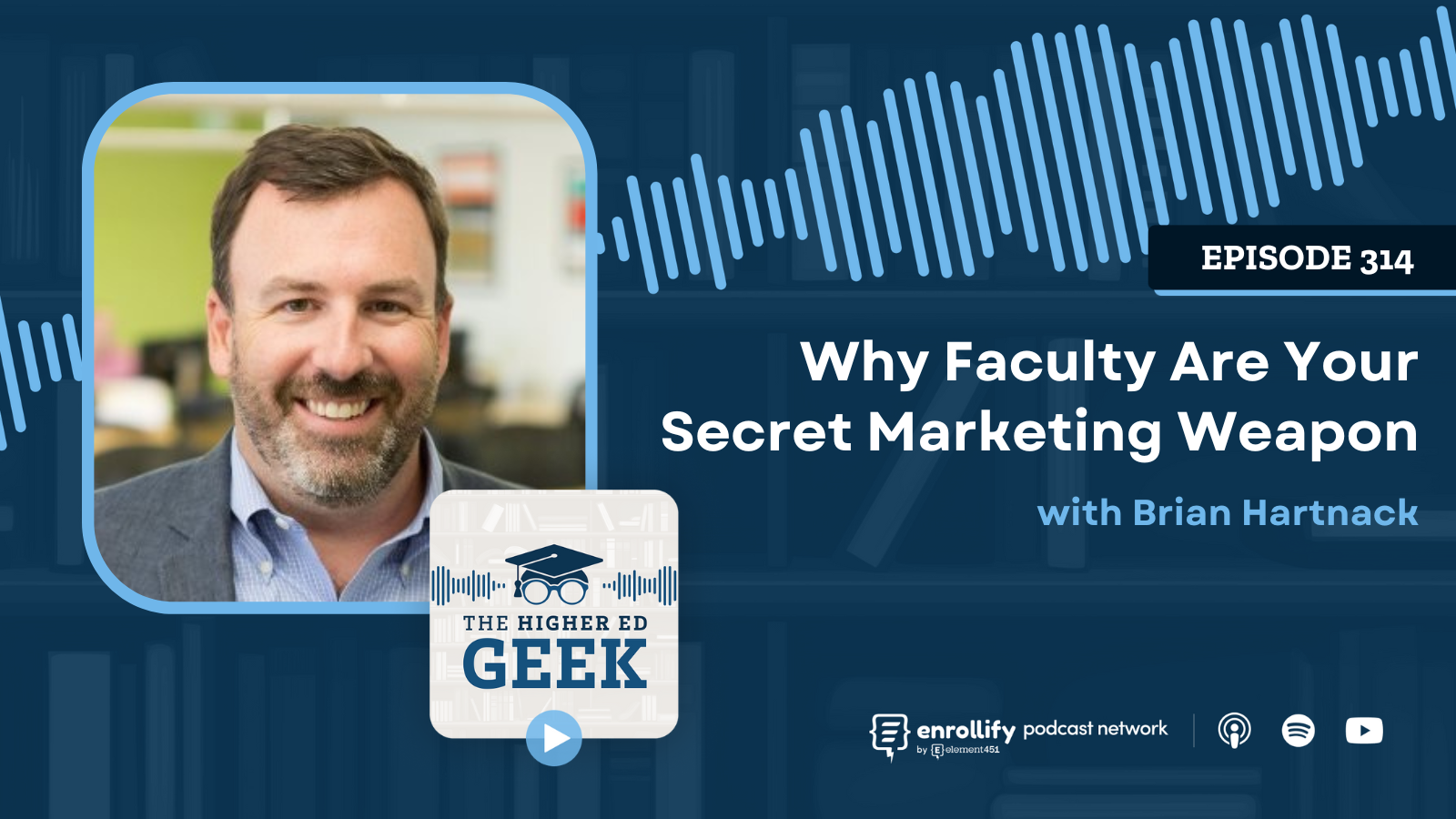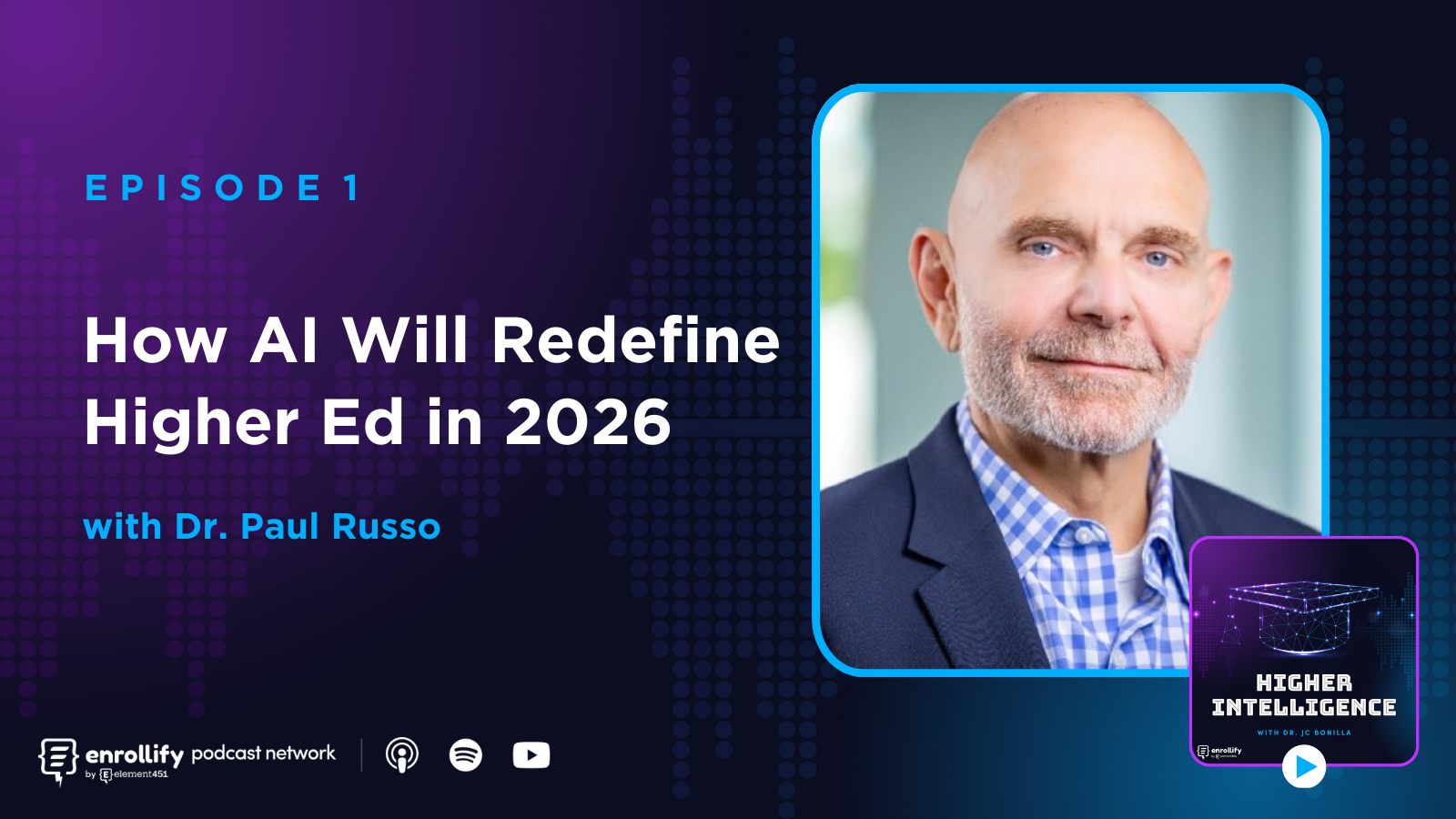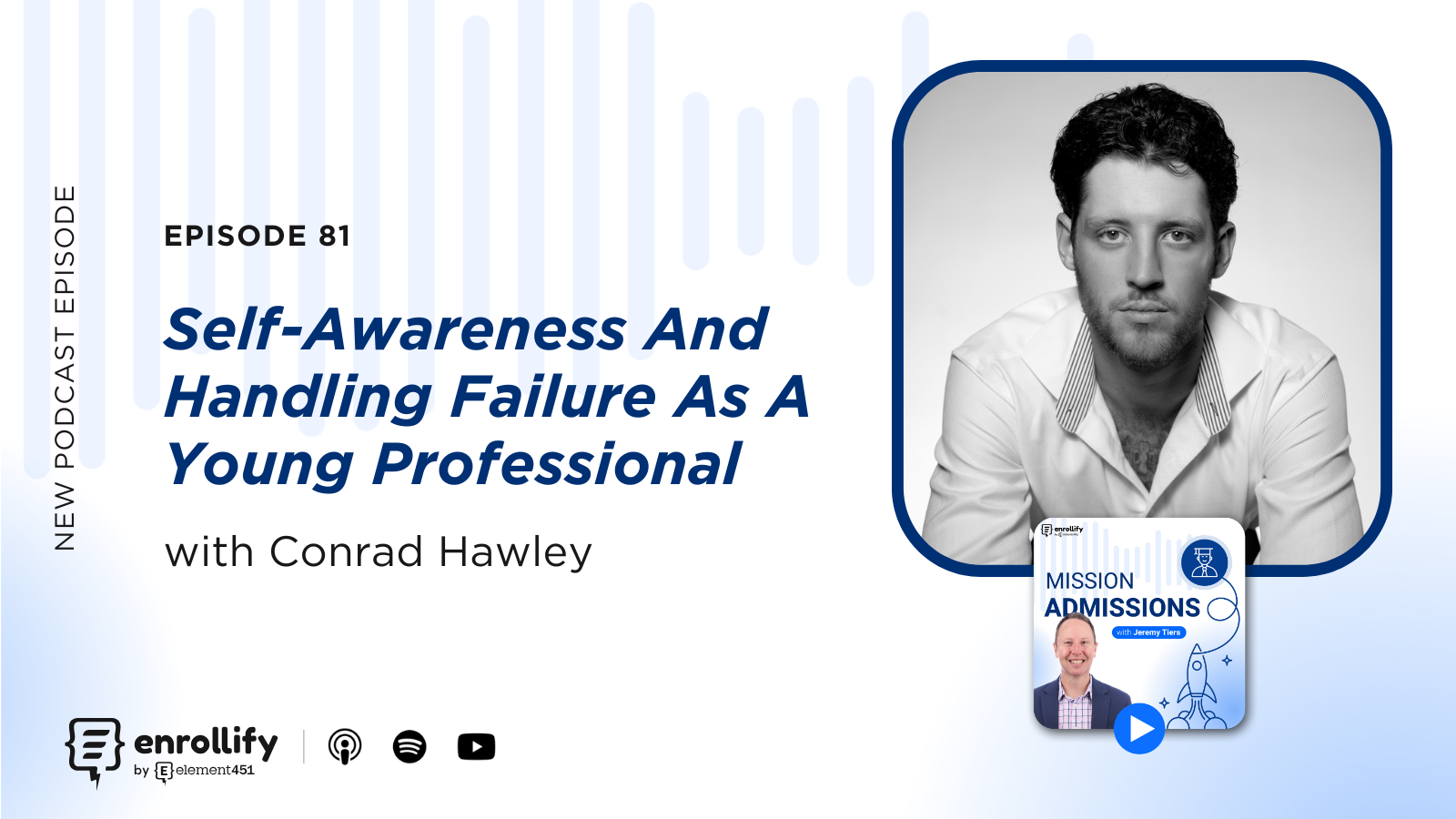About the Episode
About The Episode:
Today, we’re joined by Frank Tramble, Duke University’s Vice President for Communications, Marketing, and Public Affairs. Frank is a seasoned communications professional with extensive experience in executive communications, crisis management, marketing, and brand strategy, playing a key role in shaping Duke’s reputation and strategic goals.
Key Takeaways
- Minority leadership offers a competitive advantage in enrollment marketing by introducing new perspectives and fostering authentic brand storytelling.
- Representation is not tokenism—authenticity is rooted in influence, not optics.
- Cultural intelligence is a leadership necessity in today’s diverse student landscape.
- Multiculturalism must be lived, not just leveraged, to build inclusive communications teams and strategies.
- The most effective enrollment marketing strategies prioritize storytelling that resonates across cultural contexts.
- Everyone on campus influences the brand—not just the comms team.
- Successful communication strategies are rooted in authenticity, not curation.
What’s the difference between tokenism and authentic minority leadership?
Frank Tramble makes an important distinction early in the conversation—tokenism is not about the individual but about the institution that positions someone in a role purely for appearances. Authentic minority leadership, by contrast, stems from earned influence and strategic alignment with institutional goals. Minority leaders aren’t “diverse hires”—they’re exceptional professionals who bring unique, essential perspectives to the table.
Why does multicultural leadership matter in higher education?
Frank breaks down how multicultural leaders are equipped with a broader range of life experiences—“filters,” as he calls them—that empower them to better understand and connect with diverse audiences. This cultural intelligence is a competitive advantage in enrollment marketing, allowing institutions to build more nuanced and resonant messaging strategies. Simply put, if your leadership doesn’t reflect the reality of your student body, your marketing will always miss the mark.
How can leaders live multiculturalism beyond work?
Frank offers practical wisdom: building a diverse communications team doesn’t start with a job posting—it starts with who’s in your personal network. To lead inclusively, you have to live inclusively. That means going into unfamiliar spaces, forming authentic relationships, and making an intentional effort to grow your worldview. His challenge? Spend time being uncomfortable. That’s where learning happens.
What makes marketing to multicultural audiences authentic and effective?
It’s all about the lived experience, Frank says. Audiences today are savvy—they can smell inauthenticity a mile away. True inclusion isn’t about stock photos or curated campaigns; it’s about relationships, storytelling, and community engagement. If students don’t feel seen in your messaging and your campus environment, they’ll disengage. Your brand has to be what it says it is—and that requires campus-wide alignment.
How can communications influence institutional policy?
Frank argues that marketing and communications teams have the power—and responsibility—to influence policy by reflecting the needs and perspectives of underrepresented communities. Communications should inform and be informed by the lived experiences of students, faculty, and staff. A good story can’t fix a bad policy, but a strong brand narrative can guide institutional change when built on trust and honesty.
What does brand trust look like across cultural lines?
Trust starts with authenticity and consistency. Frank emphasizes that whether you're speaking to multicultural or mainstream audiences, the key to building trust is being real. That means showing up in genuine ways—not just talking about diversity, but living it. Your audience is watching what you do, not just what you say. Today, every student is a content creator and every interaction is a brand touchpoint.
What leadership traits define a successful higher ed CMO?
According to Frank, being a successful CMO isn’t about commanding from the top—it’s about serving the team. Building trust, forming partnerships, and being present across campus is critical. Skills may get you through the door, but emotional intelligence and strategic relationship-building are what sustain leadership at the executive level.
How should aspiring leaders sharpen their cultural competencies?
Simple: get uncomfortable. Frank challenges marketers and leaders to actively engage with communities and cultures different from their own. Attend gatherings, have real conversations, enter homes, share meals—immerse yourself. The more you stretch your worldview, the better marketer and leader you’ll become. Cultural competency isn't a checklist; it's a lifestyle.
Enrollify is produced by Element451 — the next-generation AI student engagement platform helping institutions create meaningful and personalized interactions with students. Learn more at element451.com.
Attend the 2025 Engage Summit!
The Engage Summit is the premier conference for forward-thinking leaders and practitioners dedicated to exploring the transformative power of AI in education.
Explore the strategies and tools to step into the next generation of student engagement, supercharged by AI. You'll leave ready to deliver the most personalized digital engagement experience every step of the way.
👉🏻 Register now to secure your spot in Charlotte, NC, on June 24-25, 2025!















